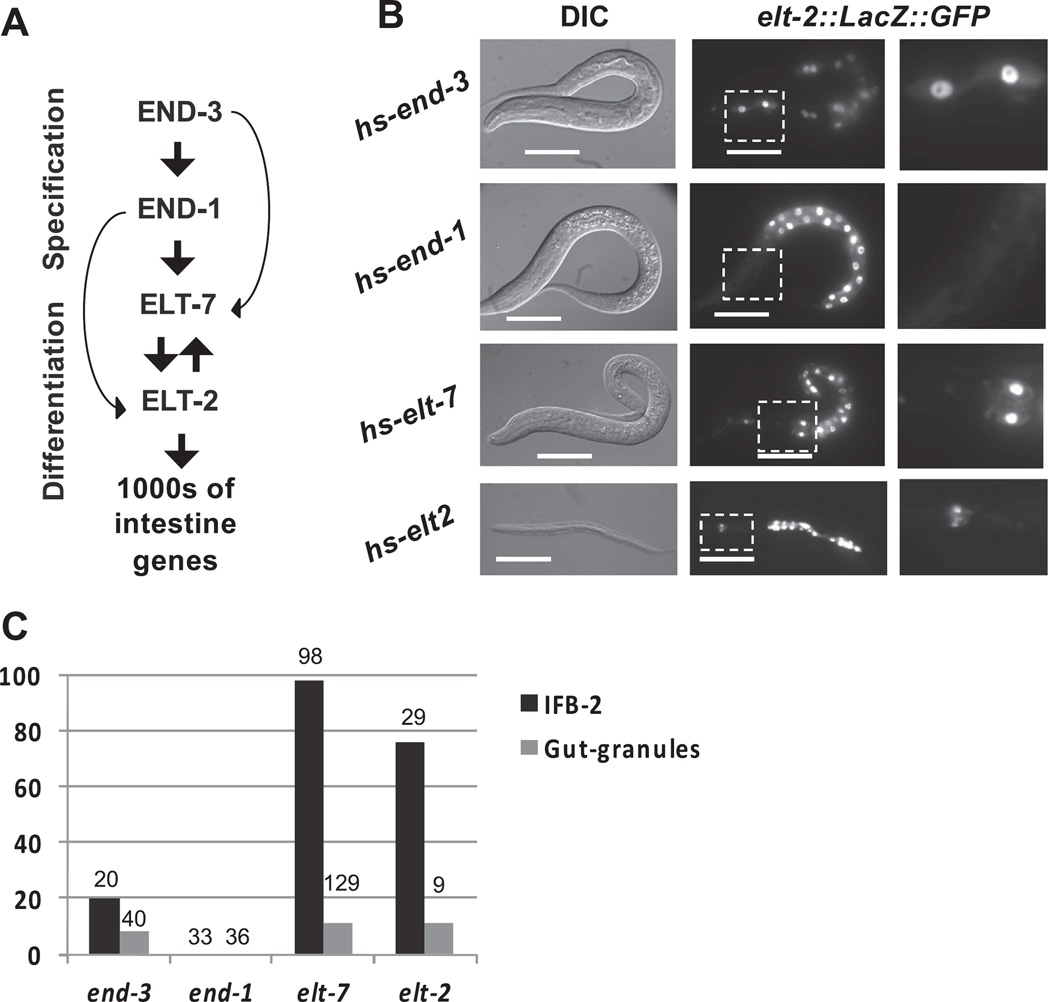Fig. 1.
Ectopic expression of multiple endoderm-promoting GATA transcription factors induces pharynx-to-intestine transdifferentiation. (A) GATA transcription factors that control the development of the C. elegans intestine. END-3 and END-1 are transiently expressed in the early embryo, specify the endoderm progenitors, and activate expression of ELT-7 and ELT-2. ELT-7/2 in turn activate and maintain robust expression of the genes required for intestine formation and function through cross and auto-activation. (B) Worms after brief heat-shock-driven ubiquitous expression of END-3, END-1, ELT-7, or ELT-2. Activation of intestine differentiation in the pharynx is evidenced by maintained elt-2 reporter expression anterior to the normal intestine(anterior is left, last panel shows boxed region in middle panel, DIC differential interference contrast, scale bars 20 µm). (C) Percentage of worms with immunoreactive IFB-2 intestine-specific intermediate filament in the pharynx, and gut-specific granules in the pharynx after ectopic GATA factor expression (total number of worms is indicated above each bar).

